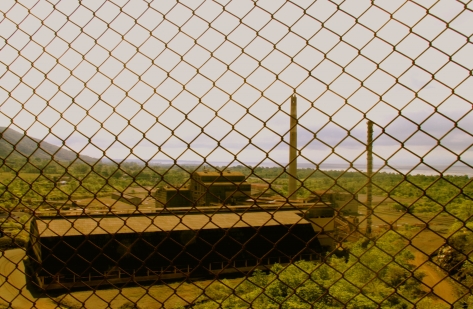DominionSections
Browse Articles
- IndependentMedia.ca
- MostlyWater.org
- Seven Oaks
- BASICS Newsletter
- Siafu
- Briarpatch Magazine
- The Leveller
- Groundwire
- Redwire Magazine
- Canadian Dimension
- CKDU News Collective
- Common Ground
- Shunpiking Magazine
- The Real News
- Our Times
- À babord !
- Blackfly Magazine
- Guerilla News Network
- The Other Side
- The Sunday Independent
- Vive le Canada
- Elements
- ACTivist Magazine
- The Tyee
- TML Daily
- New Socialist
- Relay (Socialist Project)
- Socialist Worker
- Socialist Action
- Rabble.ca
- Straight Goods
- Alternatives Journal
- This Magazine
- Dialogue Magazine
- Orato
- Rebel Youth
- NB Media Co-op
Radio
Guatemala 2
August 17, 2010
Guatemala 2

But the earth was red, and others, from the North, knew that this meant mineral wealth: materials that could be extracted, processed and sold in a global market. And so it was that in the time of rapid "development" in the 60s, 70s and 80s (and, not by coincidence, during the period of civil unrest and armed insurrection), when the World Bank sold a prescription of “poverty elimination” to Third World countries like Guatemala, and when it was decided by those in Guatemala City, in Toronto and in Washington, DC, that this land was better off in the hands of foreigners, and the subsurface should be under their jurisdiction. During the internal conflict, the processing plant pictured here was built on the lake’s edge. The town of El Estor, a prominent (though dying) outpost from the United Fruit heyday, served as the mine's base. The surrounding lands were signed over by Guatemalan army generals, all 350-plus square kilometres of it, where the best ore presumably lay beneath the tropical woods, rivers and cornfields. The span of the mine's operation was short, and tumultuous and deadly for those who lived by the land. The ownership of the mine's concession and infrastructure passed through numerous hands, through mergers and acquisitions, in order to retain licenses that the original company, Canadian-owned EXMIBAL, a subsidiary of INCO (The Canadian International Nickel Company) purchased in 1965. As of the past thirty years, since its indefinite closure, the mine site remains empty and rusting in the wet wind. But as everyone knows, vast reserves of nickel ore are still scattered throughout the site. And as long as the possibility for reopening exists, as it does today more than ever before, those who live within the concession must, and will, be removed.
by Nathan EinbinderArchived Site
The Dominion is a monthly paper published by an incipient network of independent journalists in Canada. It aims to provide accurate, critical coverage that is accountable to its readers and the subjects it tackles. Taking its name from Canada's official status as both a colony and a colonial force, the Dominion examines politics, culture and daily life with a view to understanding the exercise of power.